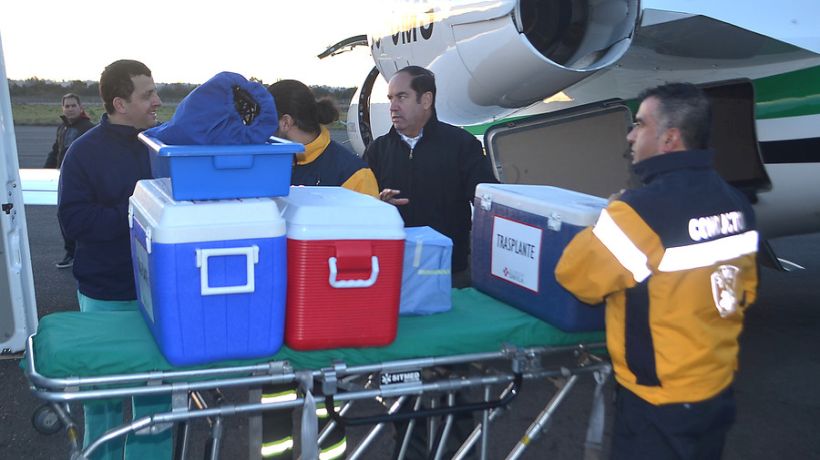
To improve the system of organ transplants in the country, the Ministry of Health advanced the first axes of a modernization plan in this area.
These include advancing the Organ and Tissue Transplant Act; recognize the living will through a law that ensures the right to donate, receive and that generates obligations for the public and private system; establish that the time to inhibit occurs from the organ donor help (full absence of electrical activity in the myocardium), which assures the family dueling and specific times, as well as adjusting pending regulations.
Among the modifications is located transplant poles in both the north and south of the country, because due to the geographical characteristics of Chile, often the process of transfer to Santiago creates difficulties in performing transplants.
With regard to the southern area, it is in search of a pole involving hospitals in Concepción and Temuco. For Concepción is sought to prioritize transplantation of heart, kidney, liver, pancreas and lung. Temuco aims to focus on strengthening kidney, living donor, crossover, altruistic and liver-building transplantation.
About donorsSomething that is also of concern to health authorities are the donor figures displayed by the country.
In 2018, 51% of cases involving a potential donor, the family rejected the procedure. So far this year, that rate is 59%. According to a minutes of the Minsal, approximately 25% of the population is registered as a “non-donor”. For the national transplant coordinator, Juan Eduardo Sánchez, these are “incompatible figures”.
From March this year law 21,145 came into force, to clarify the will of the deceased donor. Within the regulations, one year is established so that those registered as “non-donors” (about 4 million) must ratify it in the Civil Registry. This is explained by the evidence that the registry has resulted in people who have not expressed this “non-donor” will, for various reasons, to be there. An example of the above happens when you are renewing a document (license, driver’s license), and you are not asked if you want to be a “non-donor”, so you may be left in that condition. “We expect that that non-donor record will be ostensibly lower than we have today,” Sanchez said. The manager called for a transition to a donor country “where the family respects what the person determined in life.”
"El reclamo puede ser genuino, pero construido sobre una mentira", apuntó el presidente Javier Milei…
El gobernador de la provincia de Buenos Aires, Axel Kicillof, encabezó un acto en Ensenada…
El diputado nacional de La Libertad Avanza, José Luis Espert, expresó su confianza en la…
Tras la masiva reaparición de Cristina Fernández de Kirchner, el presidente Javier Milei apuntó contra…
El principal propósito de la nueva comisión es evaluar los recursos humanos en el Senado,…
En una medida que busca redefinir las condiciones de los seguros de automóviles en Argentina,…
Esta web usa cookies.